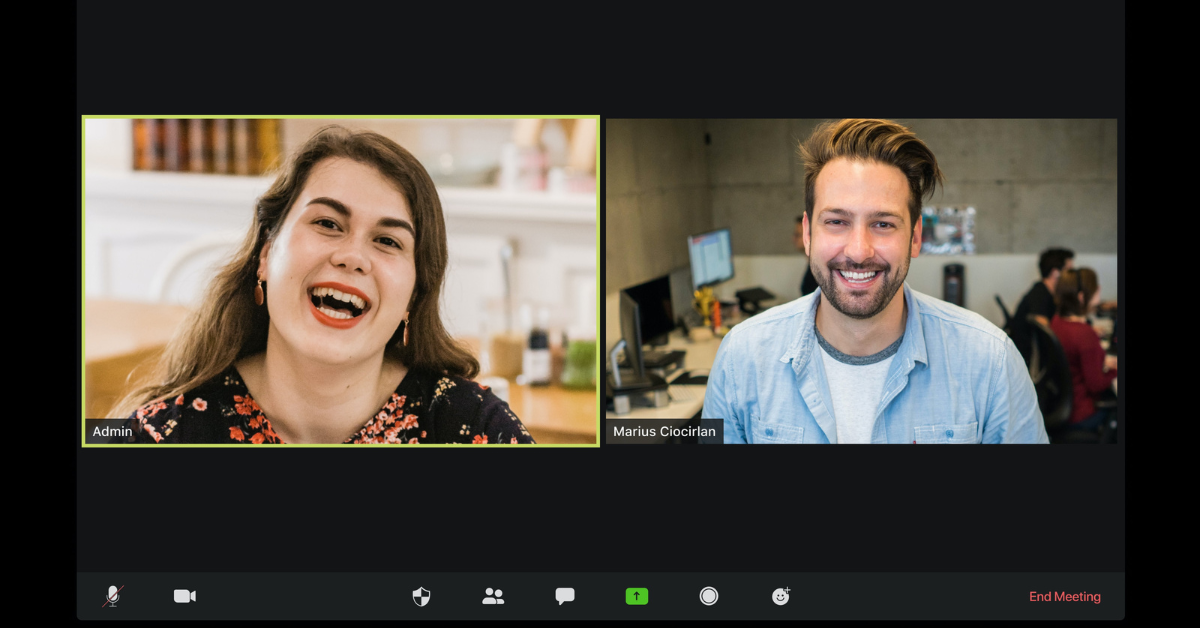Biblical Foundations of Flourishing Leadership: Exploring the 8 FLOURISH Drivers
Before coming to Best Christian Workplaces, I worked with missionaries around the world training them as leaders to spread the Gospel. When talking...

Fun at work is important for daily satisfaction and long-term commitment to a cause and an organization. Research suggests fun at work promotes positive employee engagement, increases creativity, and provides a sense of purpose, meaning, and joy in work.
Especially in remote workforces, teams spread out across different offices, states, and even countries require a degree of creativity to produce fun. Behind the screens and the Zoom calls, what needs to happen to consider a remote job fun?
Fun is more than just balloons and bagels! It all starts with intentional connection and valuing relationship-building.
Unlike in-person work environments where connection might occur more organically, remote employees, teams who are hybrid, and teams with mixed in-person and remote employees, need planned times to connect. This requires more intentionality and focus.
It is the role of leadership to foster and create these planned and focused opportunities. Because these teams lack natural, in-person opportunities to connect (for example over lunch, in the break room, or in the hallway between meetings) many remote employees report feeling disconnected from their teams and isolated, so it’s even more important to prioritize these connections.
Planned connection points can vary from team to team, but some simple examples might be virtual coffee breaks, a dedicated Slack/Teams channel, or quarterly, in-person off-sites. If you choose to let connection happen organically, it likely won’t be as accommodating to everyone in your organization and it won’t be consistent. When you choose to be intentional, you prove to your remote employees that you value and prioritize their well-being and involvement as part of the team.
Once you have established planned and intentional connection points, relationships can begin to form. The ultimate goal here is for people to feel cared for. People will ultimately be more trusting and engaged when they feel they are being prioritized and cared about enough to be known.
Relationship building is a value that varies from person to person; but, if as an organization you choose to value relationships, you’ll likely attract relationship-oriented individuals. At the same time, everyone has different expectations for what it means to be “known.” It’s important to consider the unique expectations for relationships and not force connection. In order for relationships to be authentic, they need to be genuine. This leads us to our next point - variety.
Just as you would offer training in different ways for different learners, the same should be done when offering fun. Everyone has a different idea of what is considered "fun." Some people may enjoy virtual happy hours with their teams, while others may not.
Someone on your team might find putting together beautiful PowerPoint presentations to be the most fun part of their job, while another might find that as exciting as watching paint dry. This is the benefit of a diverse workforce, and also why connection and relationships have to come first! You’ll only be able to provide custom, varied solutions for fun if you truly know your employees.
Let’s look at this practically. A very common meeting ice breaker or conversation starter is to ask something along the lines of “Do you have any fun plans this weekend?” Though this is an easy way for teammates to share something about their lives, not everyone may feel comfortable sharing an intimate detail about what they did or even feel insecure to share something so personal.
Instead, a more accommodating practice is to ask a more general question like, “What is something you’re learning currently?” or even “What’s the best book you’ve read lately?” Asking more general questions allows for a more varied and general response, and is more accommodating to generational, racial, economic, etc differences within your team.
At BCW, we curate intentional relationships and connections with each other by prioritizing communicating in a “watercooler” Teams channel. Here, anyone can share anything - whether that’s a cute picture of their dog, an interesting article or podcast, prayer requests, and more. We have identified one channel, in one place to foster this kind of connection. People can choose to engage how they want to and how often, so it’s not overwhelming but still inclusive.
Remember to choose a channel that works best for your team - and choose just one! The more places you have communication flowing the less likely people will authentically engage (and the more likely they will feel overwhelmed or annoyed by all of the notifications).
The better you know your teammates, the better you’ll be able to solve their problems. Ultimately, fun cannot occur unless your employees have the freedom and resources they need to accomplish the tasks at hand. Your job is to remove the barriers to fun. Regardless of how many “fun” team-building activities you have planned, if people are too overwhelmed or stressed to even accomplish their everyday responsibilities, they won’t have fun.
A great practice for supervisors to understand their employees is to ask, “Tell me about a time when work was fun?” Once you understand what makes work fun for that person, create opportunities for them to do more of that thing! Play into the strengths of your team and assign tasks that are the most rewarding to the people who find the most joy and satisfaction from those activities.
Keep in mind, fun is an outcome of positive things that are happening. In a remote environment, it can be more challenging to determine what’s missing, which is why it’s so important to regularly communicate and check in with employees.
When employees report not having fun at work, it’s because something robbed them of the joy they had at the beginning - more times than not, this looks like a lack of resources, poor communication, no work-life balance, a lack of healthy relationships with coworkers, and more. Enjoyment of work also keeps us from being burnt out and burnout occurs when chronic issues like these continue to remain unresolved. Fun is an outcome of a healthy culture, not a solution to an unhealthy culture.
If you’re interested in learning more about how to evaluate your organization’s culture, the BCW Employee Engagement Survey is a great place to start and can help you pinpoint areas of opportunity.
“Nothing is better for a man than to eat and drink and enjoy his work.” - Ecclesiastes 2:24
“Let the thief no longer steal, but rather let him labor, doing honest work with his own hands, so that he may have something to share with anyone in need.” - Ephesians 4:28
“...to aspire to live quietly, and to mind your own affairs, and to work with your hands, as we instructed you, so that you may walk properly before outsiders and be dependent on no one.” - 1 Thessalonians 4:11-12
“Diligent hands will rule, but laziness ends in forced labor.” - Proverbs 12:24
Scripture reminds us there’s nothing better than doing something with our hands. People love to complete their work; we want to feel accomplished!
We can help people find joy - which is more than just a sense of fun but something deeper - when the work is important, can be completed, and uses our God-given talents. As Christians, we have access to a sense of joy that is deeper and more significant than secular fun would ever be able to accomplish. This is true, life-giving work. We cannot dismiss this gift or choose to see it as optional.
Fun is a sense of joy. But, fun cannot substitute for cultural health. It’s more than balloons and bagels. It’s creating an environment where people are in their zone and have what they need so they can enjoy their work and find meaning and purpose. That’s our hope for you…let’s go have some fun!
###

Before coming to Best Christian Workplaces, I worked with missionaries around the world training them as leaders to spread the Gospel. When talking...

Living out core values in the course of everyday organizational life provides a foundation for a flourishing workplace culture. Seeing evidence of...
.png)
As I have reviewed Best Christian Workplaces Employee Engagement Survey results for dozens of clients, I’ve noticed that people respond to a question...